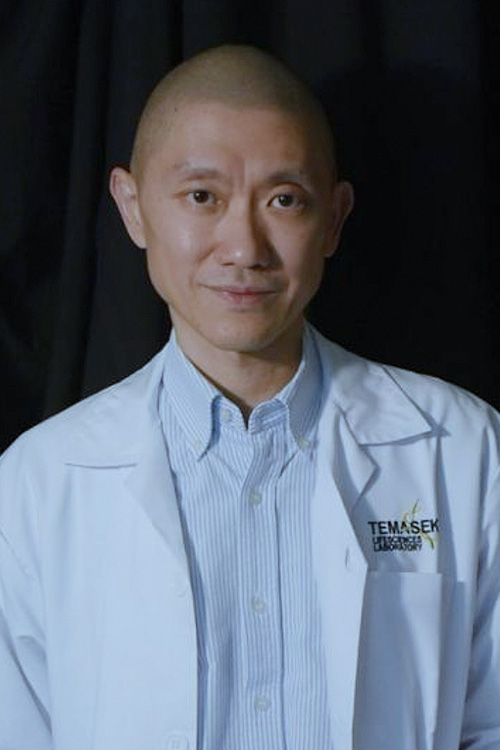
Impact
- Co-founded Pathnova Laboratories Pte Ltd, a TLL spinoff dedicated to the early detection of nasopharyngeal cancer in the general population using AI-enhanced serology. Pathnova is currently screening 20,000 Singaporeans in an NMRC-backed study to show that early detection saves lives.
- Co-founded Entopsis, a recipient of the Breakout Labs Grant from the Thiel Foundation (2011).
- Co-invented a new algorithmic approach for identifying cancer mutations which is currently being commercialized by Oncodia AB, a Swedish cancer precision medicine startup (2018)
- Discovered that a special property of a tumor-colonizing bacterium (Clostridium novyi-NT) could enable the precisely targeted delivery of specially-prepared chemotherapy to tumors (2006). Clostridium novyi-NT is currently in clinical testing.
Collaborations, Achievements & Honours
Dr. Cheong pursued his PhD at the Johns Hopkins University School of Medicine under a Temasek International Scholarship. Recognition for Dr. Cheong’s scientific work include the Grand Prize of the US Collegiate Inventors Competition; the Copper Black Award for Creative Achievement (2008); 40 under 40: Rising Stars, Baltimore Magazine, v101; 1st Prize (Basic Science) at Fellows Research Day, Sidney Kimmel Comprehensive Cancer Center, Johns Hopkins University; and the Inspiring Research Mentor Award, NUS High School of Math and Science.
Research Areas
Molecular Pathogenesis, Genetics & Genomics, Cancer Therapeutics
Affiliations
- Senior Principal Investigator, TLL
- Adjunct Associate Professor, Department of Biological Sciences, NUS
- Co-Founder, Pathnova Laboratories Pte Ltd (Singapore)
- Co-Founder and Advisor, Entopsis Inc (United States)
Question
How can we harness engineered anaerobic microbes to activate and amplify the body’s natural immune response against cancer?
Approach
Effective cancer therapies rely on identifying and exploiting the differences between normal and malignant tissues. These differences can be molecular, such as genetic mutations, or physiological, as seen in the unique characteristics of tumors. Malignant solid tumors are typically structured with a viable outer rim and a necrotic inner core. While most current treatments focus on the well-vascularized outer rim, the inner hypoxic core remains an underexplored target. This core is distinct from normal tissue due to its poor vascular supply, resulting in a lack of oxygen and nutrients. The absence of functional blood vessels also impairs the clearance of toxic cellular debris, creating a low pH environment. While inhospitable to most human cells, this environment is ideal for the growth of certain anaerobic bacteria.
One such bacterium is Clostridium novyi-NT, an anaerobic strain identified after extensive screening for its ability to germinate and colonize tumors in mouse models. Our earlier research revealed that this bacterium secretes a membrane-disrupting protein, which can be leveraged to enhance the effectiveness of cancer drugs. When bacterial spores are administered intravenously, they germinate specifically within the hypoxic tumor core and secrete the protein. A subsequent intravenous dose of cancer drugs, encapsulated in lipid particles, leads to these lipid particles breaking apart in the tumor’s vicinity due to the secreted protein, releasing the drug precisely where it is needed. This approach highlights the potential of anaerobic bacteria to improve the precision of cancer drug delivery, addressing the relatively low specificity of many current treatments.
We are currently exploring additional anaerobic bacteria and advanced engineering strategies to further enhance the safety and efficacy of this innovative cancer therapeutic approach.
Bio
Ian Cheong began his career as a lawyer in 1999. In the course of his pupillage at Harry Elias Partnership, Ian had the opportunity to interact with scientifically-trained clients. After deciding that science was too much fun to be left to the scientists, he left his job at the law firm to train as a scientist. Ian enrolled as a science undergraduate, but a year and a half into his studies, he was offered a scholarship to attend graduate school at the John Hopkins University. Focusing on cancer therapeutics, he completed his thesis (2007) and post-doctoral research (2010) under Professors Bert Vogelstein MD and Kenneth Kinzler PhD. During this time, Ian also received the Grand Prize at the Collegiate Inventors Competition organized by the National Inventors Hall of Fame. Before returning to Singapore, Ian spent time at Uppsala University working on a computational problem related to cancer mutation detection. This work was eventually licensed by Oncodia AB, a Swedish cancer precision medicine startup.
Pursuing his research at TLL, Ian’s lab has focused on turning anaerobic bacteria into microbial trojan horses which colonize solid tumors and destroy them from within. In 2017, together with Professor Chan Soh Ha, he co-founded Pathnova Laboratories Pte Ltd, a TLL spin-off company developing technology to enable the scalable detection of nasopharyngeal cancer and autoimmune diseases using artificial intelligence. Besides his current appointment as Senior Investigator at TLL, Ian is also an Adjunct Associate Professor at the Department of Biological Sciences at the National University of Singapore.
Senior Principal Investigator
Ian Cheong
The lab focuses on cancer therapeutics and machine learning projects.